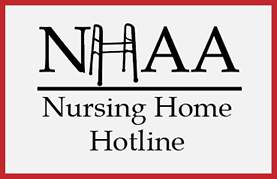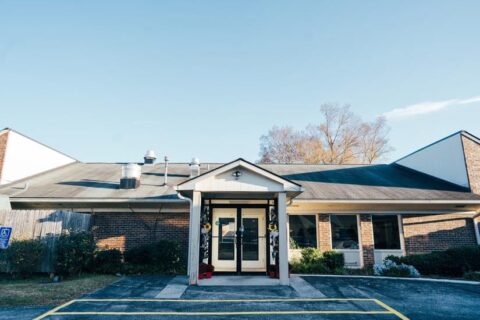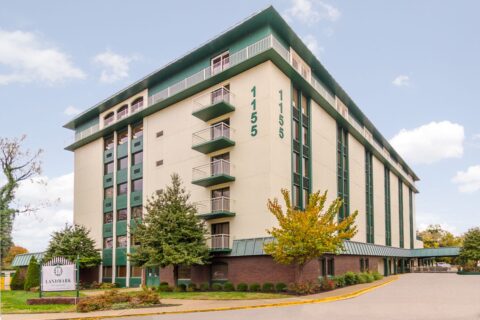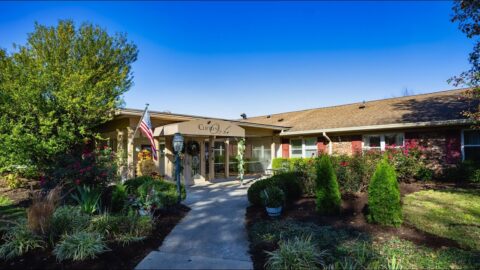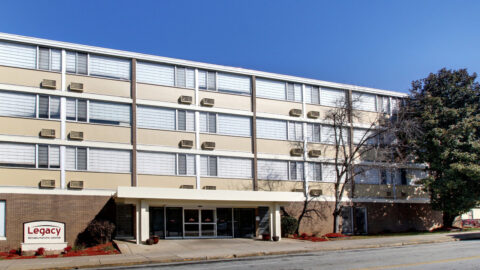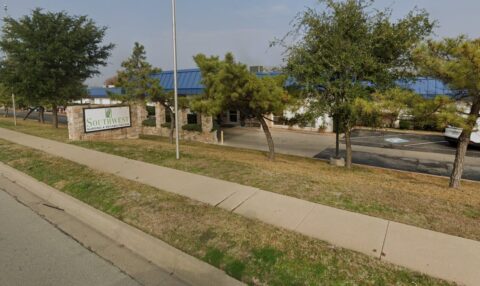TYLER, TX – NURSING HOME RESIDENT DIES DUE TO PROFOUND DEHYDRATION
In The News:
COLONIAL TYLER CARE CENTER
LOCATED: 930 S BAXTER, TYLER, TX 75701
COLONIAL TYLER CARE CENTER was cited by the DEPARTMENT OF HEALTH AND HUMAN SERVICES CENTERS FOR MEDICARE & MEDICAID SERVICES for the following deficiencies:
PLEASE NOTE: The following highlighted quoted text is only a portion of the full report/survey submitted by DEPARTMENT OF HEALTH AND HUMAN SERVICES CENTERS FOR MEDICARE & MEDICAID SERVICES. The full report/survey can be found here.
FACILITY FAILED TO PROVIDE THE NECESSARY CARE AND SERVICES IN ACCORDANCE WITH THE COMPREHENSIVE ASSESSMENT AND PLAN OF CARE
LEVEL OF HARM – IMMEDIATE JEOPARDY
**NOTE- TERMS IN BRACKETS HAVE BEEN EDITED TO PROTECT CONFIDENTIALITY**
Based on interview and record review, the facility failed to provide the necessary care and services in accordance with the comprehensive assessment and plan of care for 1 of 6 residents reviewed for a change in condition. (Resident #4) Resident #4 experienced changes in his level of consciousness, had diarrhea, and refused to eat; however, the facility did not assess or provide treatment for [REDACTED]. Resident #4 was sent to the local emergency room and admitted with altered mental status, profound dehydration, urinary tract infection, metabolic acidosis, and [MEDICAL CONDITION] (elevated potassium). Resident #4 died in the hospital on [DATE]. An Immediate Jeopardy situation was identified on [DATE].
Continuing: During an interview on [DATE] at 3:15 p.m., CNA E said she cared for Resident #4 on the 6 a.m.- 2 p.m. shift Saturday [DATE] and Sunday [DATE]. She said on both days Resident #4 was not his usual self and he was weaker than normal. She said Resident #4 was not able to sit up as he normally did and she had to put him to bed early. CNA E said she notified LVN B of Resident #4’s decline. During an interview on [DATE] at 5:25 p.m., CNA F said she provided care for Resident #4 on Saturday [DATE] and Sunday [DATE]. CNA F said Resident #4 was in bed on her 2 p.m.-10 p.m. shift both days which was not his norm. She said Resident #4 ate 25 percent of his evening meal and only drank a few sips of fluids which was not normal for him. CNA F said Resident #4’s urine had a strong smell and she reported this to her charge nurse. The 24 hour report sheet dated Saturday [DATE] night shift indicated Resident #4 had diarrhea. There was no indication a physician was notified. A nursing note by RN C dated [DATE] at 12:00 a.m. indicated Resident #4 had loose stools three times and poor skin turgor. The note did not indicate a physician was notified. During an interview on [DATE] at 4:10 p.m., LVN B said she provided care for Resident #4 on Sunday [DATE] and Resident #4’s sister voiced concern about Resident #4 not eating or drinking well. LVN B said on Sunday Resident #4 stayed in bed, had extremely dry skin, and did not eat well. She said she thought the resident looked the same. LVN B said she did not call the physician. A nursing note by RN A dated Sunday [DATE] at 12:00 a.m. indicated Resident #4 was drooling. There was no other documentation in the nursing notes from [DATE] – [DATE] of the resident drooling. The note did not indicate a physician was notified of the change. During an interview on [DATE] at 3:45 p.m., Resident #4’s sister said she came to the facility on [DATE] a little after 8:00 a.m. because her sibling called her very upset about Resident #4’s condition change on Sunday [DATE]. She said she found Resident #4 unable to talk and he was so very weak. Resident #4’s sister said his morning meal was on his bedside table untouched. She said she went to the nurse’s station and demanded someone send him to the hospital. During an interview on [DATE] at 2:10 p.m., ADON D said Resident #4’s sister was at the nursing station saying something is wrong with him and requested his transfer to the emergency room . ADON D said she assisted RN A with transferring Resident #4. ADON D said the resident looked like he had a stroke. During an interview on [DATE] at 2:50 p.m., RN A said Resident #4’s sister was convinced he had a decline in condition on [DATE] and requested he be sent to the ER. RN A said Resident #4 was his usual total care, nothing unusual. RN A said she pushed fluids on Resident #4 because of decreased food and fluid consumption. RN A said when she assessed Resident #4 prior to sending him to the emergency room she saw no change in him, she saw no signs of dehydration and did not see any reason to notify the physician prior to the sister’s request. She said she called the physician because the sister said she could see a whole lot of difference in him. A nursing note by RN A dated Monday [DATE] at 9:00 a.m. indicated Resident #4 was lying in bed alert but slow to respond. The resident did not follow directions, had decreased tactile sensation, increased right sided facial drooling, was very weak, and had a very poor appetite. The note indicated the family was present and requested Resident #4 be transferred to the hospital. At 9:30 a.m. the nursing note indicated after the family’s insistence, the nurse practitioner was notified and an order was given to send to ER for evaluation. The note indicated at 10:10 a.m. EMS was at the facility to transfer Resident #4 to the ER. The undated nursing home transfer to hospital form completed by RN A indicated Resident #4’s vital signs were: blood pressure ,[DATE], heart rate 63, respirations 16, temperature 97.1, and oxygen saturation 90%. The reason for transfer was listed as possible TIA ([MEDICAL CONDITION]- mini stroke). During an interview on [DATE] at 3:10 p.m., the DON said she was not familiar with Resident #4’s condition when he left the facility. The DON said there was not an intake and output record for Resident #4. The DON said his disease processes did not warrant use of monitoring using intake and output recordings. She said she was not notified of Resident #4 having diarrhea, decreased appetite, and weakness. The DON said she expected the nurse to assess the resident and to call the physician when residents experienced changes in condition. The hospital admission lab results dated [DATE] at 10:50 a.m. indicated Resident #4 had the following abnormal results: *white blood cell count of 22.7 (Normal range 3XXX,[DATE].6), *sodium 145 (normal range ,[DATE]), *potassium 6.1 (normal range 3XXX,[DATE].1), *chloride 118 (normal range ,[DATE]), *BUN 170 (normal range ,[DATE]) and, *creatinine 6.94 (normal range 0XXX,[DATE].30). *The urine WBCs were loaded (too many to count) and had heavy bacteria. *A chest x-ray indicated atelectasis in the lung basis. A hospital history and physical dated [DATE] at 2:40 p.m. indicated when Resident #4 arrived in the emergency room his mental status was very altered, he was barely awake and could not respond at all. The laboratory reports indicated the resident had increased potassium and increased BUN and creatinine. Resident #4’s general assessment was blood pressure ,[DATE], heart rate 111, temperature 97.7, and respirations 13. The resident’s tongue was very dry and he was unable to respond to verbal commands. The assessment indicated Resident #4 [MEDICAL CONDITION] secondary to a urinary tract infection with severe dehydration resulting in acute kidney injury. A renal consult report from the urologist on [DATE] at 2:40 p.m. indicated Resident #4 was lethargic and severely dehydrated. Resident #4’s oral mucosa were very dry and his skin turgor was very poor. The note indicated the etiology of Resident #4’s acute [MEDICAL CONDITION] was secondary to profound dehydration. Resident #4 also presented with [MEDICAL CONDITION] (increased potassium) and metabolic acidosis. (Life threatening condition that occurs when the kidneys can’t eliminate acid buildup) A cardiopulmonary resuscitation note dated [DATE] at 6:25 a.m. indicated Resident #4 expired in the intensive care unit. The policy and procedure dated ,[DATE] indicated .to notify the physician and inform the resident and resident’s responsible party of a significant change in the resident’s physical, mental psychological status including accidents and when there is a need to alter treatments significantly.
Continuing: The administrator and DON were notified on [DATE] at 4:40 p.m. that an Immediate Jeopardy situation was identified due to the above failures.
Personal Note from NHAA Advocates: NHAA shares with all the families of loved ones who are confined to nursing homes the pain and anguish of putting them in the care of someone else. We expect our loved ones to be treated with dignity and honor in the homes we place them. We cannot emphasize enough to family members of nursing home residents; frequent visits are essential to our loved ones’ well-being and safety. This nursing home and many others across the country are cited for abuse and neglect.
You can make a difference. If you have a loved one living in this nursing home or any other nursing home where you suspect any form of abuse or neglect, contact us immediately. We can help you file a state complaint, hire a specialized nursing home attorney or help you find a more suitable location for your loved one.
Contact us through our CONTACT FORM located on our website here below or on the sidebar or call our toll free hot line number: 1-800-645-5262
You can make a difference even if your loved one has already passed away.
Your Experience Matters
...and we want to hear it.
NHAA is here to assist families, residents, and the community by sounding the alarm on issues like those found above. This nursing home and many others across the country are cited for abuse and neglect.
If you have or had a loved one living in this nursing home or any other nursing home where you suspect any form of abuse or neglect, contact us immediately.
We have helped many already and we can help you and your loved one as well by filing a state complaint, hiring a specialized nursing home attorney or helping you find a more suitable location for your loved one.
You can make a difference, even if your loved one has already passed away.
Please give us a call at 1-800-645-5262 or fill out our form detailing your experience.
Personal Note from NHA-Advocates
NHAA shares with all the families of loved ones who are confined to nursing homes the pain and anguish of putting them in the care of someone else. We expect our loved ones to be treated with dignity and honor in the homes we place them. We cannot emphasize enough to family members of nursing home residents; frequent visits are essential to our loved ones’ well-being and safety.
If you are struggling and upset, click here to understand your options, or contact us through our contact form or call our toll free hot line number: 1-800-645-5262.
